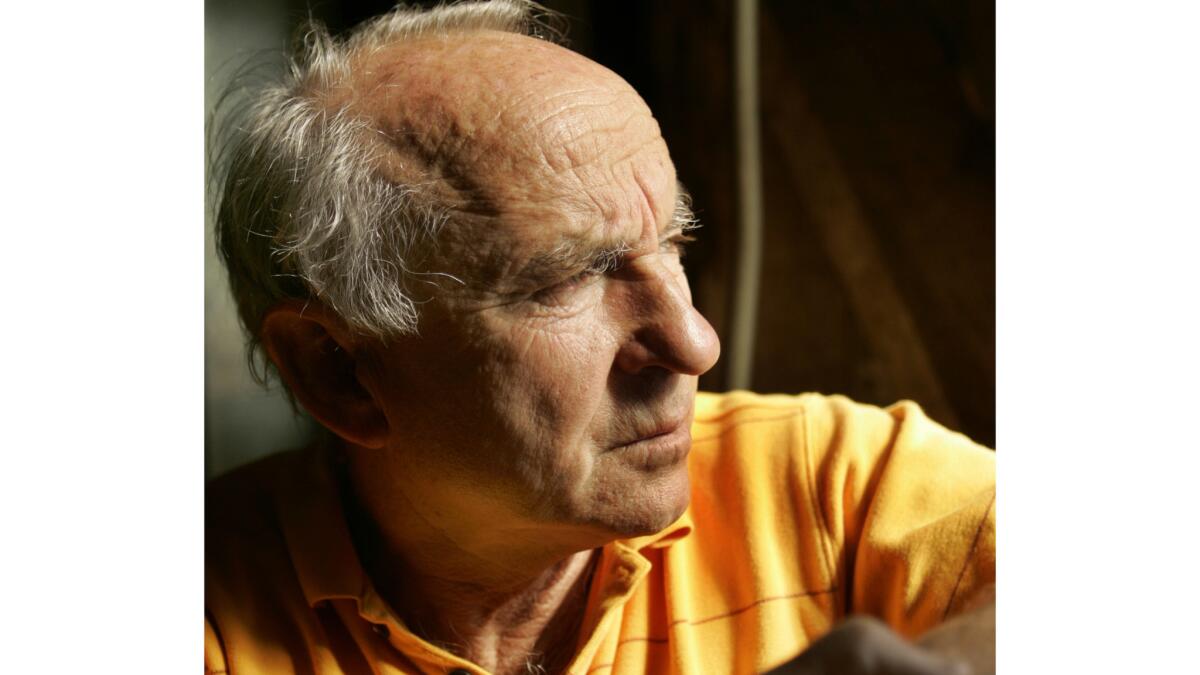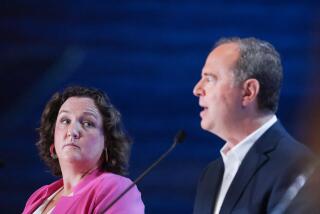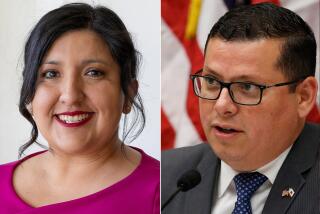Outdoor clothing firm Patagonia endorses Senate candidates — maybe a first for a company

In what campaign finance experts say may be a first, California outdoor clothing company Patagonia is endorsing two Senate candidates in the western United States, where protecting the public land in which its customers recreate is a key concern.
The Ventura-based retailer announced Friday that it is backing two Democrats: incumbent Sen. Jon Tester, who is running for reelection in Montana, and Rep. Jacky Rosen, who is seeking to unseat Republican Sen. Dean Heller in Nevada. The two Senate races are among the most competitive in 2018 in a chamber in which Republicans hold a razor-thin, 51-49 majority.
“Public lands are center stage there, in Montana and Nevada,” Patagonia spokeswoman Corley Kenna said. “And we felt by motivating our community to vote, we could help protect the public lands and waters in those places.”
Many corporations, such as AT&T, Exxon Mobil and UPS, have established political action committees that take donations from employees and give it to candidates. The companies themselves stay mum on their preferred candidates.
Some chief executives and other high-level executives endorse candidates as well. For example, Facebook’s chief operating officer, Sheryl Sandberg, backed Hillary Clinton in 2016, while casino tycoon Sheldon Adelson endorsed Donald Trump. But neither the social networking firm nor Adelson’s company, Las Vegas Sands, issued endorsements.
What Patagonia is doing is different. For as much money as corporate interests have pumped into politics after the Supreme Court’s Citizens United decision in 2010, Patagonia’s move may constitute the first time any corporation has explicitly endorsed a candidate for office, experts say.
“I am not aware of a similar corporate endorsement of a candidate,” said Richard Briffault, a Columbia Law School professor and campaign finance expert, “although I can’t say it never happened before.”
Michael Kang, a law professor and campaign finance expert at Northwestern University, similarly could not recall any other public endorsement of a candidate from a corporation.
“Consumer-facing companies traditionally shy away from taking sides publicly in candidate races, so it would make sense if nothing comparable has happened since Citizens United,” Kang said. “Before Citizens United, a public endorsement of this type would’ve been illegal, so it’s a relatively new opportunity in any event.”
Brenden Quinn, outreach coordinator for the Center for Responsive Politics, added that no one there could “think of any other time a company has explicitly endorsed a candidate” other than endorsements printed in the opinion pages of newspapers.
“We’re frankly in an era where nothing really should surprise us,” Quinn said. “It is something that took our entire office by surprise.”
For Patagonia, this is hardly the first time it has dipped its steel-toed boot into politics. For more than a decade, the company ran get-out-the-vote campaigns in stores and online, encouraging customers to support the deployment of renewable energy and to oppose the construction of new fossil fuel infrastructure.
Since President Trump’s election, Patagonia’s public political activity has sharply increased. Last year, the company sued the Trump administration after the administration shrank in size two national monuments in Utah. Patagonia’s website declared, “The President Stole Your Land.” Company founder Yvon Chouinard appeared on CNN to call the government “evil.”
“I’m not going to sit back and let evil win,” Chouinard said.
Republicans saw the proclamations from Trump to scale back the Bears Ears and Grand Staircase-Escalante national monuments as a much-needed reversal of federal overreach that they say elbowed ranchers and other locals from the land.
Democrats, however, decried the loss of protections for about 2 million acres of wilderness. Rosen called the decision “thoughtless” while Tester called it “an unprecedented and historic rollback” that threatened the outdoor recreation economy.
So the company’s position polarized the clothing brand in Washington. The top Democrat on the Senate Energy and Natural Resources Committee, Maria Cantwell from Washington state, registered a protest of the national monuments decision by donning a Patagonia jacket at a committee hearing.
On the other side of the Capitol, Republicans on the House Natural Resources Committee, led by Utah’s Rob Bishop, accused the company of “hijacking our public lands debate to sell more products to wealthy elitist urban dwellers from New York to San Francisco.”
A spokeswoman for the Federal Election Commission said the agency does not track corporate endorsements of federal candidates. But the commission’s website does explain that companies may endorse candidates as long as they do not “coordinate the announcement” with the campaign. Patagonia said Wednesday that Tester’s and Rosen’s teams were unaware of the endorsements.
“There are a robust set of laws around campaign finance issues,” said Rob Tadlock, a lawyer at Patagonia, “and we’re confident were within those bounds.”
Grandoni writes for the Washington Post.






